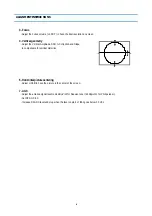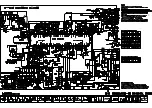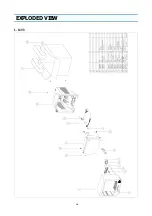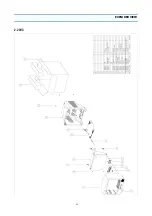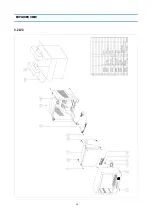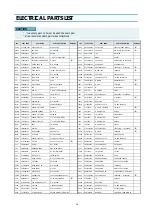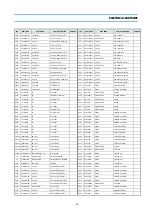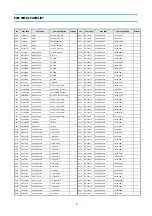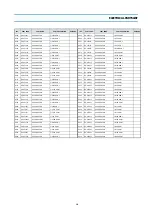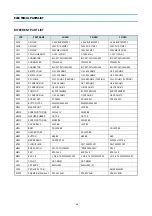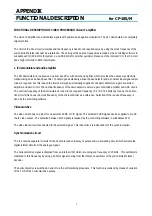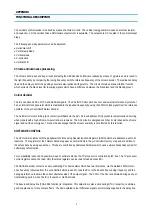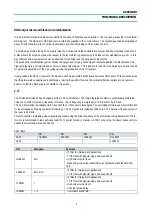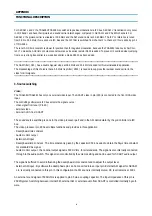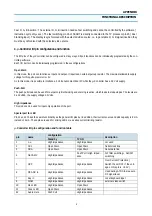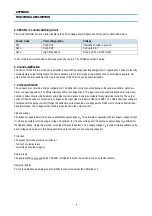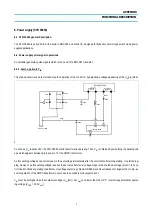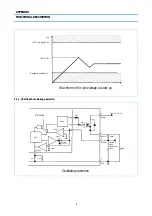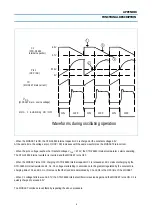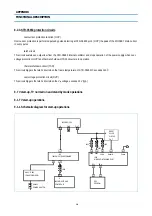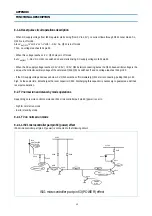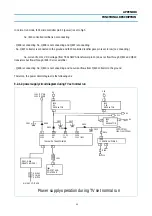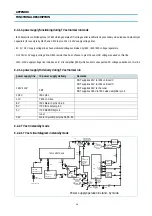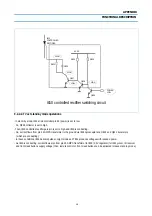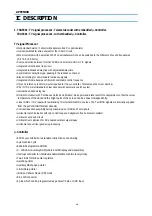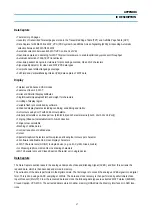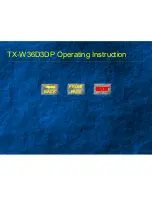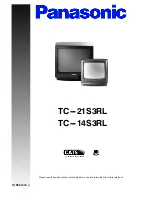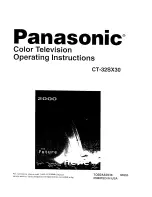
2
FUNCTIONAL DESCRIPTION
The vertical synchronisation is realised by means of a divider circuit. The vertical ramp generator needs an external resistor
and capacitor. For the vertical drive a differential output current is available. The outputs are DC coupled to the vertical output
stage.
The following geometry parameters can be adjusted:
•
Horizontal shift
•
Vertical amplitude
•
Vertical slope
•
S-correction
•
Vertical shift
Chroma and luminance processing
The chroma band-pass and trap circuits (including the SECAM cloche filter) are realised by means of gyrators and are tuned to
the right frequency by comparing the tuning frequency with the reference frequency of the colour decoder. The luminance delay
line and the delay cells for the peaking circuit are also realised with gyrators. The circuit contains a black stretcher function
which corrects the black level for incoming signals which have a difference between the black level and the blanking level.
Colour decoder
The ICs can decode PAL, NTSC and SECAM signals. The PAL/NTSC decoder does not need external reference crystals but
has an internal clock generator which is stabilised to the required frequency by using the 12 MHz clock signal from the reference
oscillator of the
µ
-Controller/Teletext decoder.
The Automatic Colour Limiting (ACL) circuit (switchable via the ACL bit in subaddress 2OH) prevents oversaturation occurring
when signals with a high chroma-to-burst ratio are received. The ACL circuit is designed such that it only reduces the chroma
signal and not the burst signal. This has the advantage that the colour sensitivity is not affected by this function.
SOFTWARE CONTROL
The CPU communicates with the peripheral functions using Special function Registers (SFRS) which are addressed as RAM
locations. The registers for the Teletext decoder appear as normal SFRs in the
µ
-Controller memory map and are written to
these functions by using a serial bus. This bus is controlled by dedicated hardware which uses a simple handshake system for
software synchronisation.
For compatibility reasons and possible re-use of software blocks, the TV processor is controlled by I2C bus. The TV processor
control registers cannot be read. Only the status registers can be read ( Read address 8A ).
The SECAM decoder contains an auto-calibrating PLL demodulator which has two references, via the divided 12 MHz refer-
ence frequency (obtained from the
µ
-Controller) which is used to tune the PLL to the desired free-running frequency and the
bandgap reference to obtain the correct absolute value of the output signal. The VCO of the PLL is calibrated during each ver-
tical blanking period, when the IC is in search or SECAM mode.
The base-band delay line (TDA 4665 function) is integrated. This delay line is also active during NTSC reception, to obtain a
good suppression of cross colour effects. The demodulated colour difference signals are internally supplied to the delay line.
APPENDIX
Содержание DTA-14V1
Страница 26: ...6 CIRCUIT BLOCK DIAGRAM...
Страница 29: ......
Страница 30: ...10 EXPLODED VIEW 1 14V3...
Страница 31: ...11 EXPLODED VIEW 2 20V3...
Страница 32: ...12 EXPLODED VIEW 3 21V3...
Страница 33: ...13 PRINTED CIRCUIT BOARD CIRCUIT DIAGRAM 6 SERVO SYSCON CEC CIRCUIT DIAGRAM T DECK...
Страница 59: ...19 IC DESCRIPTION APPENDIX...
Страница 62: ...22 APPENDIX IC DESCRIPTION...

